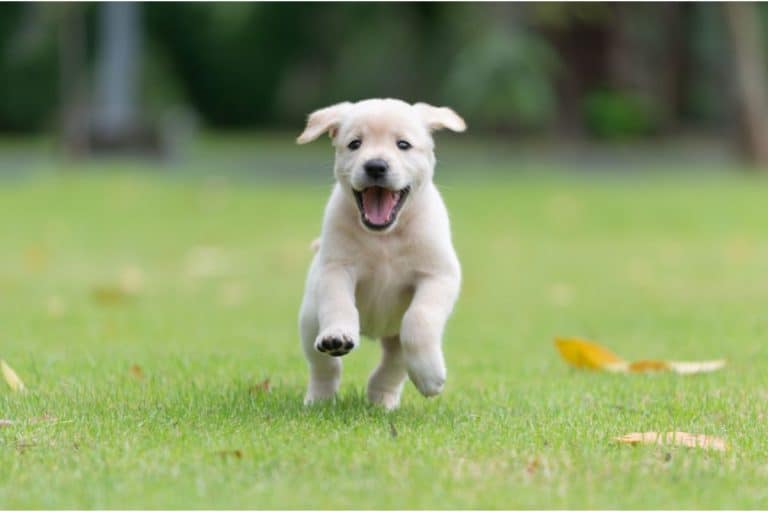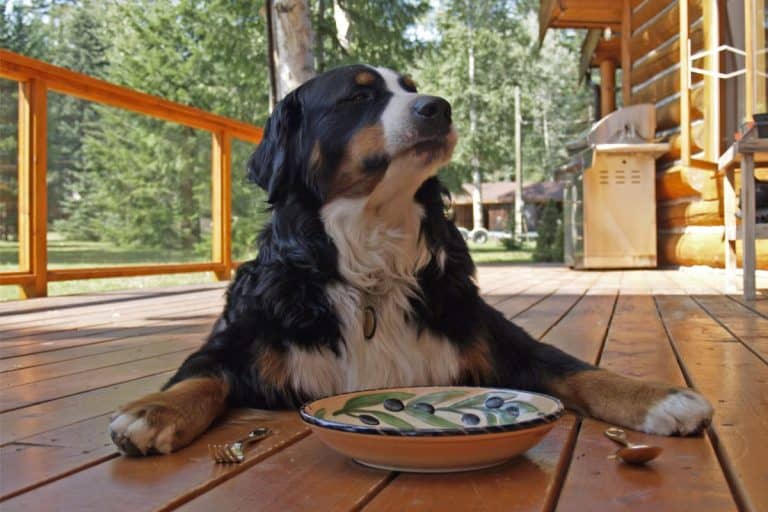Is Kennel Cough Contagious To Humans?
If you have a dog that has contracted kennel cough, you may have been required to get them the Bordetella vaccine so that they can use most services for dogs. But is kennel cough contagious to humans?
Generally, kennel cough is not contagious to humans but can affect those people whose immune system has been compromised, as well as infants and pregnant women.
Therefore, it is recommended that you stay away from dogs with kennel cough or those who have had it in the past two weeks if you are at risk.
Kennel cough is not fatal for your dog, but if left untreated it can cause severe side effects.
This article will explain what kennel cough is, the causes, the transmission, the systems, and how it can be treated.
What Is Kennel Cough?
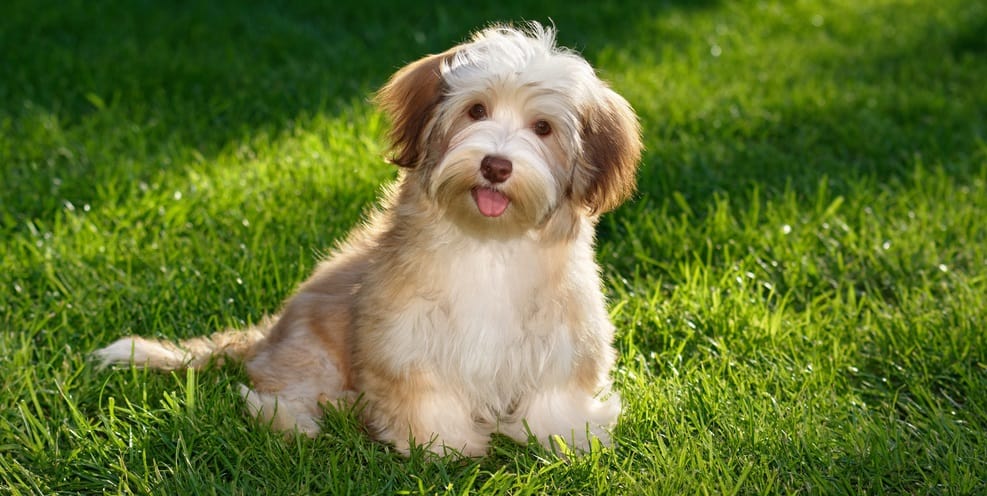
Kennel cough is an infectious disease that affects the respiratory system and is caused by both a virus and bacteria. It affects the dog’s windpipe, lungs, and voice box.
Bordetella bronchiseptica is the most common bacteria that cause kennel cough and is related to the bacteria that causes human whooping cough.
Usually, kennel cough is caused by a combination of viruses such as canine influenza or canine distemper and Bordetella. The viruses attack the cells in the respiratory system and weaken the immune system.
Causes And Transmission Of Kennel Cough
The most common infectious element that causes kennel cough is Bordetella. Other viral and bacterial elements that can infect your dog with kennel cough are parainfluenza and streptococcus zooepidemicus.
Since this illness is a combination of viral and bacteria factors as well as highly contagious, most grooming companies, boarding facilities, and other dog facilities may require a vaccine before using their services.
Any small outbreak can lead to total sanitation and complete closure to prevent other animals from being sick.
Kennel cough can stay on surfaces for up to two days, making it difficult to keep your dog free from it especially in busy areas such as dog parks.
Additionally, if there is an active infection present your dog can be sick from sharing toys, dishes, or kennels.
Even if your dog has recovered from kennel cough symptoms, they may still carry the virus and will be contagious from 10 to 14 days after getting infected. Using antibiotics will ensure that the time is shorter, and all active viruses have been eliminated.
Symptoms Of Kennel Cough In Dogs
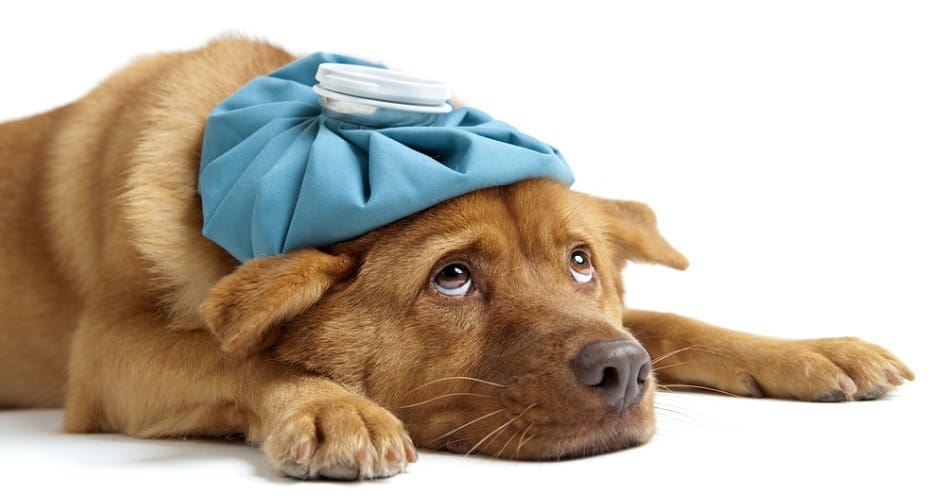
The viruses and bacteria your dog takes in through breathing droplets or contact settle around the voice box and in their trachea, causing inflammation and creating a stubborn cough.
Your dog may sound like they are choking on something or like a honking goose. Typically, your dog will not lose their appetite, be lethargic, or experience a reduction in energy if they have kennel cough, even though it can sound worse than it is.
The Following Are The Symptoms To Watch Out For:
- Runny nose
- Persistent and forceful cough
- Sneezing
- Eye discharge
Some of these symptoms are like that of canine influenza and canine distemper virus. A trained professional will help you determine whether your dog has kennel cough and recommend a treatment plan to help your dog heal.
If your dog starts showing low-grade fever, lack of appetite, lethargy, or decreased energy, contact your vet immediately, as your dog may be suffering from a serious illness that needs immediate treatment.
Symptoms Of Kennel Cough In Humans
If a person has an active kennel cough infection, they will show similar symptoms to what dogs have. The following are the symptoms to watch out for:
- Difficulty swallowing
- Sore throat
- Shortness of breath
- Stubborn, persistent cough
- Fever
- Respiratory issues
Kennel cough can lead to pneumonia if left untreated which is a more serious issue than a cough. If you have a pre-existing condition and have contracted kennel cough, you may also experience the following:
- Lung abscess
- The build-up of fluid around the lungs
- Septic shock
- Respiratory failure
If you are not sure whether the symptoms you are showing are for kennel cough or have contracted the illness, speak to your doctor for diagnosis and treatment.
Reinfection Rates Of Kennel Cough
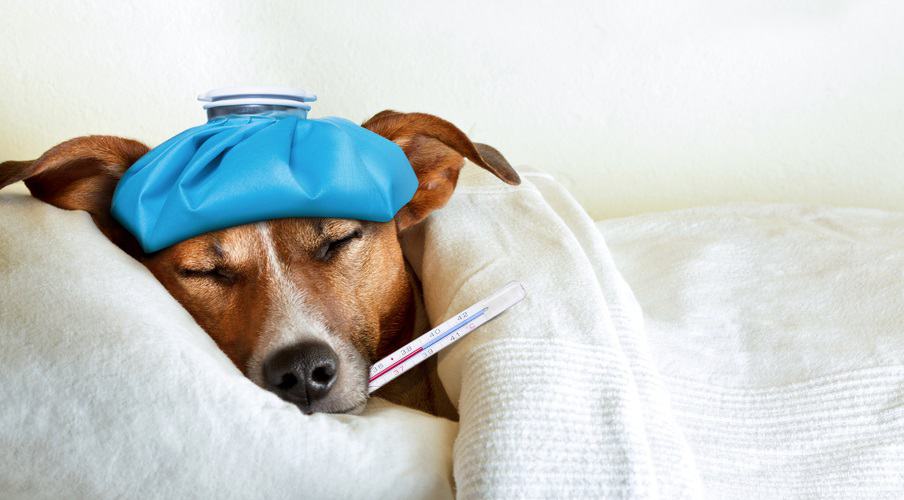
Since kennel cough is a combination of several viral and bacterial elements, the sickness is not always caused by the same strain.
However, your dog can be infected by various variants if they frequently visit areas where sick pets are present. This means that your dog can get kennel cough several times throughout their life.
Fortunately, if your dog has contracted the Bordetella strain that causes kennel cough, they will be immune from 6 to 12 months to reinfection.
Can Humans Get Kennel Cough From Their Dogs?
Pet handlers and owners can transfer the bacteria to different surfaces, continuing the illness without getting sick themselves. Although not common, kennel cough can affect people that are immunocompromised.
People with HIV, lung cancer and other respiratory issues can show kennel cough symptoms after contracting the virus. Dogs with kennel cough should not be allowed to be in contact with babies and pregnant women.
Kennel Cough Complications
Typically, kennel cough does not require special treatment and will naturally go away and subside within three to six weeks.
The timeline depends on the age of your dog and whether they have an underlying condition that may make the illness more severe.
Puppies whose immune systems have not fully matured can develop fatal bronchopneumonia while senior dogs with kennel cough can develop chronic bronchitis.
If your dog is a senior or a puppy and they contract kennel cough, you should take them to the vet immediately for treatment.
Even healthy dogs with kennel cough can show severe symptoms. If you are concerned about a kennel cough infection and your dog’s health, seek advice from your vet immediately.
Treatment For Kennel Cough For Dogs
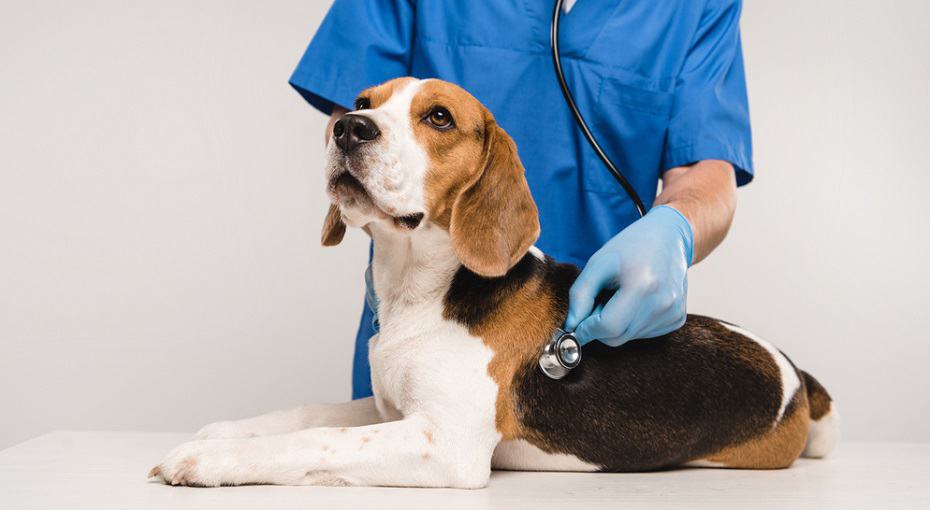
Most healthy dogs will not need treatment if they develop kennel cough symptoms because this illness always goes away within a couple of weeks without any complications.
However, senior dogs, puppies, and other dogs that may not be able to shake the virus need treatment to prevent severe issues.
In dogs, kennel cough is treated with antibiotics, vaporizers to help with breathing, or cough suppressant medication. Additionally, dogs should get the Bordetella vaccine to reduce the risk of contracting kennel cough.
However, even vaccinated dogs can still be infected, but the symptoms will be reduced significantly with preventative measures.
If your dog has kennel cough, you should sanitize and clean your hands every time you handle their toys, water, and food dishes, and pet them.
This is to avoid transmitting the virus to other animals or surfaces and continue the infection.
Regularly clean their bedding, kennel, and all surfaces, and keep them away from other pets at home. You can use a solution of 32 ounces of water and 1 ounce of bleach to disinfect the toys, surfaces, and bedding.
Can I Give Robitussin To A Dog With Kennel Cough?
Most vets will recommend Robitussin to relieve kennel cough symptoms. This medication is for humans and has not been approved by the FDA to be used in animals.
However, its effectiveness in repressing chronic bronchitis and coughing in dogs has made it part of the vet’s plan for kennel coughs.
Robitussin should not be given to dogs with lung diseases such as pneumonia or heart disease.
Also, it should not be taken by a dog taking any tranquilizers, sedatives, or barbiturates. Speak to your vet before giving Robitussin to your dog.
Treatment For Kennel Cough For Humans
If your doctor diagnoses you with kennel cough, they will prescribe cough suppressants such as Robitussin and antibiotics to you to help reduce the symptoms until you recover completely.
Recovering From Kennel Cough
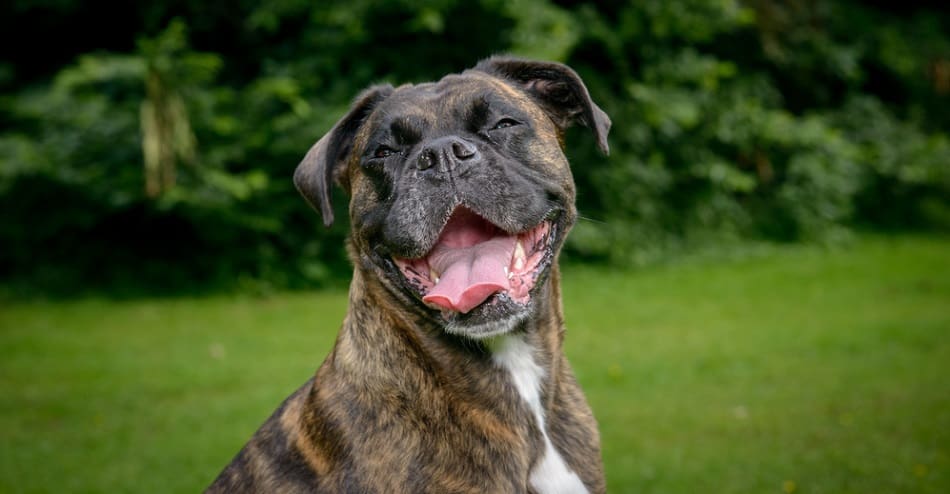
If your dog has contracted kennel cough, they should be kept in isolation for 10 to 14 days. You should not take them to common areas such as kennels, dog parks, walks down your street, or daycares.
Even though you can control your dog when strolling, other dogs may run to you and have contact with your dog, contracting the infection.
Therefore, it is important to keep your dog at home until they fully recover and are free from any contagious elements.
What Are Zoonotic Diseases?
Zoonotic diseases are caused by Zoonosis, which are germs that transfer from animals to humans. These germs can cause different types of illnesses in animals and people, causing mild to serious illnesses and even death.
It can be caused by bacteria (for example in Kennel cough), viruses, fungi, and parasites. Zoonotic diseases are common around the world.
Animals provide sport, food, fiber, livelihoods, education, and companionship for people around the earth. Millions of people around the globe have a pet or two in their homes.
Therefore, you can come in contact with animals during travel, in a rural or urban setting, when visiting animal exhibits, or during your outdoor activities.
Some of the zoonotic diseases have ravaged humans before scientists and doctors realized that they are contracted from animals. Six out of ten diseases are zoonotic according to CDC (Centre for Disease Control and Prevention).
Examples that you must have heard are bubonic plague, swine flu, and avian (bird) flu. The most common zoonotic diseases are rabies, Lyme disease, salmonellosis, brucellosis, and malaria.
Is Kennel Cough Zoonotic?
Kennel cough is zoonotic because the bacteria causing it can transfer from animals to humans, but it is less often for people to contract it. Animals that can get kennel cough include cats, dogs, rabbits, humans, primates, guinea pigs, and horses.
Frequently Asked Questions (FAQs)
The following are questions frequently asked by dog owners about kennel cough:
Is Kennel Cough Contagious To Babies?
Although there is not enough evidence to support this, babies who have underdeveloped immune systems are prone to kennel cough. Therefore, if you have a dog with kennel cough, keep them away from babies until symptoms are gone.
Bordetella bacteria cause kennel cough, and it has close relatives such as Bordetella Pertussis which is very contagious to babies. This means that it is important to keep your baby away from an infected dog.
Can Humans Spread Kennel Cough?
However rare it is, when kennel cough is transmitted to a human, it can be contagious to other humans. This cough can be spread through aerosol droplets; therefore, very close or direct contact can cause a spread.
This disease is easily contracted by immune-compromised people such as those with cancer, HIV/AIDS, or with an organ transplant or people with weaker immunity like those in old age or with deteriorating health as well as children with underdeveloped immune systems
Can Human Transmit Kennel Cough To Dogs?
Yes, if you are one of the people to contract kennel cough from your dog, you can pass the infection back and forth. Therefore, it is important to isolate.
If your immune system is weak or compromised and you contract the kennel cough from your infected dog, consider isolating yourself and your dog. Find someone to help you so you don’t get close to your infected dog again till you get well.
What Are the Risks Of Kennel Cough Vaccine To Humans?
Kennel cough is rare in humans; therefore, there is no vaccine for humans. However, a freshly vaccinated dog can be a risk to a person whose immune system is compromised or weak.
This is because they can have adverse reactions to the dog’s vaccine. Vaccines have live viruses or bacteria in them to raise the immunity, hence this live virus may negatively affect the immune-compromised individual. However, cases of this are very rare.
Does Kennel Cough Hurt Dogs?
Kennel’s cough does not necessarily need treatment and is not life-threatening. It goes away on its own when it infects healthy dogs.
However, puppies, elderly dogs, or those with preexisting conditions can develop more serious health issues such as pneumonia. Therefore, it is recommended that you take your dog to the vet immediately if they show symptoms of kennel cough.
Do I Need To Disinfect My House If My Dog Has Kennel Cough?
If your dog has contracted kennel cough, clear out their kennel for about one to two weeks and clean it using common disinfectants such as bleach.
In addition when you get home from shows, ensure to disinfect, beddings, crates, and bowls.
Does Kennel Cough Live On Grass?
The kennel cough bacteria and virus particles are airborne, and your dog can get it by inhaling those particles, whether the infected dog is present at the time or not.
These particles can last for multiple days objects such as fences, grass, toys, bowls, shoes, and clothing that your dog may come in contact with.
How Do You Get Rid Of Kennel Cough Fast?
Kennel’s cough signs can last from 7 to 21 days and can irritate the dogs and the owner. Extreme cases of kennel cough are rare with most dogs recovering without any medication.
You can help get rid of the kennel cough by giving your dog honey. Honey is a great home remedy to clear kennel cough since it helps reduce coughing and soothe your dog’s throat.
You can mix one or one-half tablespoons of honey with some warm water in a bowl and give it to your dog for up to three days depending on the frequency of your dog’s cough.
Should You Walk Dogs With Kennel Cough?
It is important to consult your veterinarian for your dog’s treatment recommendations. If you can take your dog with kennel cough for a walk, don’t use a collar but rather a harness.
This is because if the tracheal is irritated, the cough can be aggravated, and the trachea can be damaged.
Final Words
Kennel cough is a highly contagious illness that affects the respiratory tract and most dogs face it at some point in their life. However, with regular cleaning protocols, vaccines, and proper care, you can keep your dog healthy and safe.
Remember that you can carry the virus to other humans, surfaces, or dogs even though you are not showing any signs of kennel cough.
You should properly sanitize your dog’s items and wash your hands when your dog has this infection so that you do not pass it to other dogs or contract it.
Hopefully, this article has answered the question of is kennel cough contagious to humans? Hopefully, you now know the importance of keeping your dog, yourself, and other dogs safe from it.



